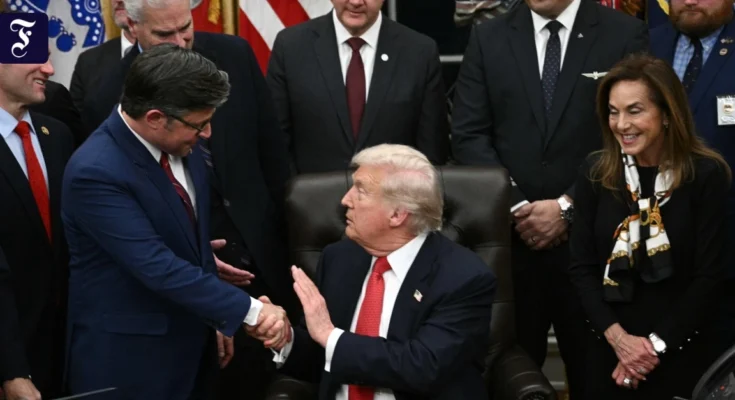While the economic diagnosis delivered on Wednesday is reasonable and prudent, it is not a good one the Expert Council for the Overall Assessment of Economic Development – in journalistic shorthand: “economic experts” – has issued to the federal government. The five economists estimate economic growth of only 0.2 percent this year and only 0.9 percent next year. This is not just a disaster for the new coalition, which actually wants to fight for a new start and recovery.
Much has been said about the domestic economic recommendations following the presentation of this report: proposed corporate tax reform, higher inheritance taxes, greater tax incentives for research and development, or even a special debt of 500 billion euros to be spent on investment. At least it is worth studying economists’ assessments of the world economic situation.
Because, this highlights many fundamental problems that are almost or have not been resolved at all through domestic political reforms that have been debated. “Germany’s export model is at risk,” they write, due to geopolitical changes, still too high barriers in the EU’s internal market, structural changes in the global economy and, of course, due to the unreliability of US trade policy.
This is also evident in America’s budget dispute, which Congress ended on Thursday evening after six weeks. Initially only felt in Germany through the cancellation of flight connections. However, this has indirectly created great uncertainty among consumers and companies in the US, and this in turn has clouded the order prospects of German companies. Not to mention the tariff law battle in the Supreme Court.
Less debate about heritage, more about China
Expert reports and budget disputes are examples of what is often overlooked in the economic policy debate in Germany. The German economy is more dependent on global economic developments than other countries. Yet both the government and the opposition continue to act as if symbolic domestic political measures such as abolishing the heating law or cutting citizens’ benefits are the best solution for the domestic economy.
Much of the time in the inheritance tax debate should be spent thinking about how German companies can become even more competitive compared to China.
One example: No politician has yet explained how delaying the ban on combustion engines would help German automakers sell more cars in China. Because it is precisely Germany’s increasing weakness in the world’s largest car market that is making them difficult. And there is not much prospect that from 2035 only new emission-free cars will be allowed to be sold. But in China now almost only electric cars are sold, and Germany is currently having difficulty competing with them both in terms of technology and price.
On the other hand, this also means that things in Germany may not be as bad as they think. Erik F. Nielsen, a former economist at Goldman, Unicredit and the International Monetary Fund, recently pointed this out. He diagnosed that the problems in Germany were not caused by bureaucracy or part-time work, but rather by large external shocks, from Corona to Russia’s attack on Ukraine, which had an impact on energy prices, interest rates and inflation. Added to this is the pressure to stick to black zero, even though investment is required. “The good news is that all of these shocks have now weakened or reversed,” Nielsen wrote. Therefore, he expects German growth to be significantly more dynamic in the future than other economists.
Now Nielsen is just one voice among many; unfortunately, like all predictions, you only know in hindsight whether they were true. But this shows that perspective is also important when assessing prospects. And this is especially true for exporting countries, according to Bill Clinton’s campaign wisdom: It’s the global economy, stupid!


